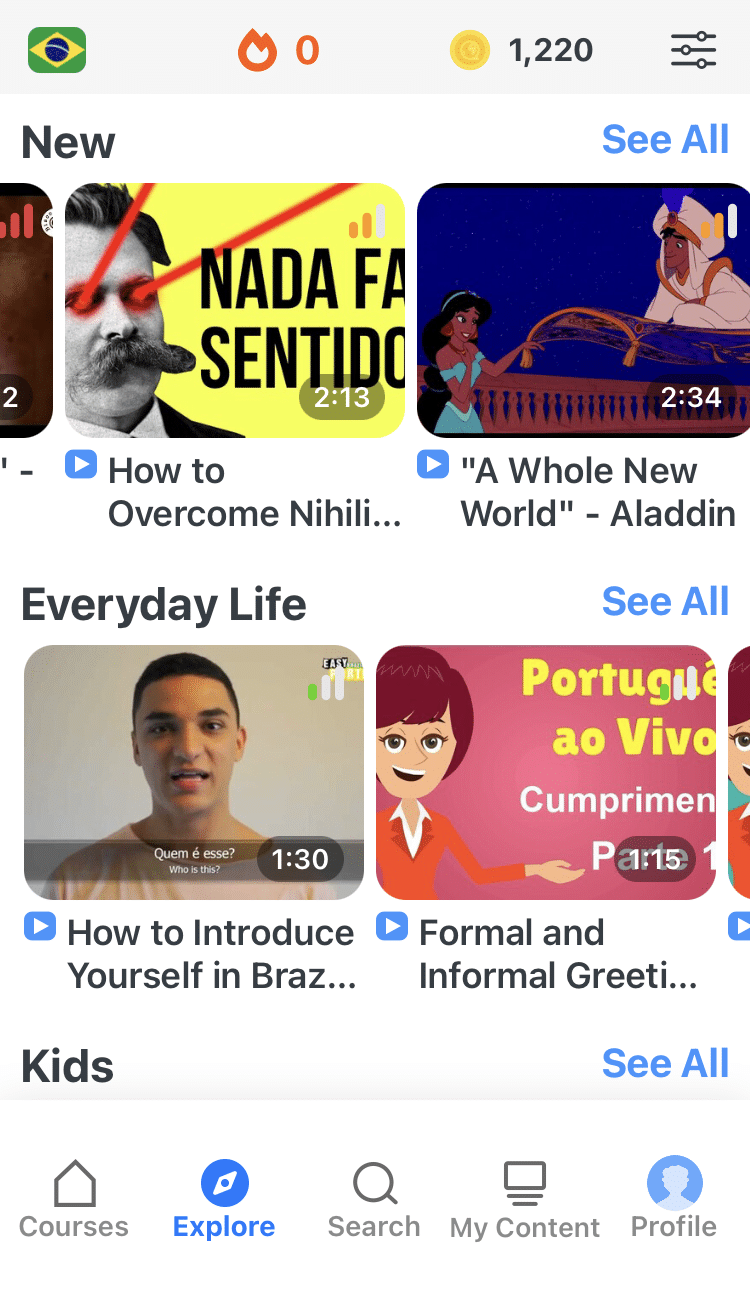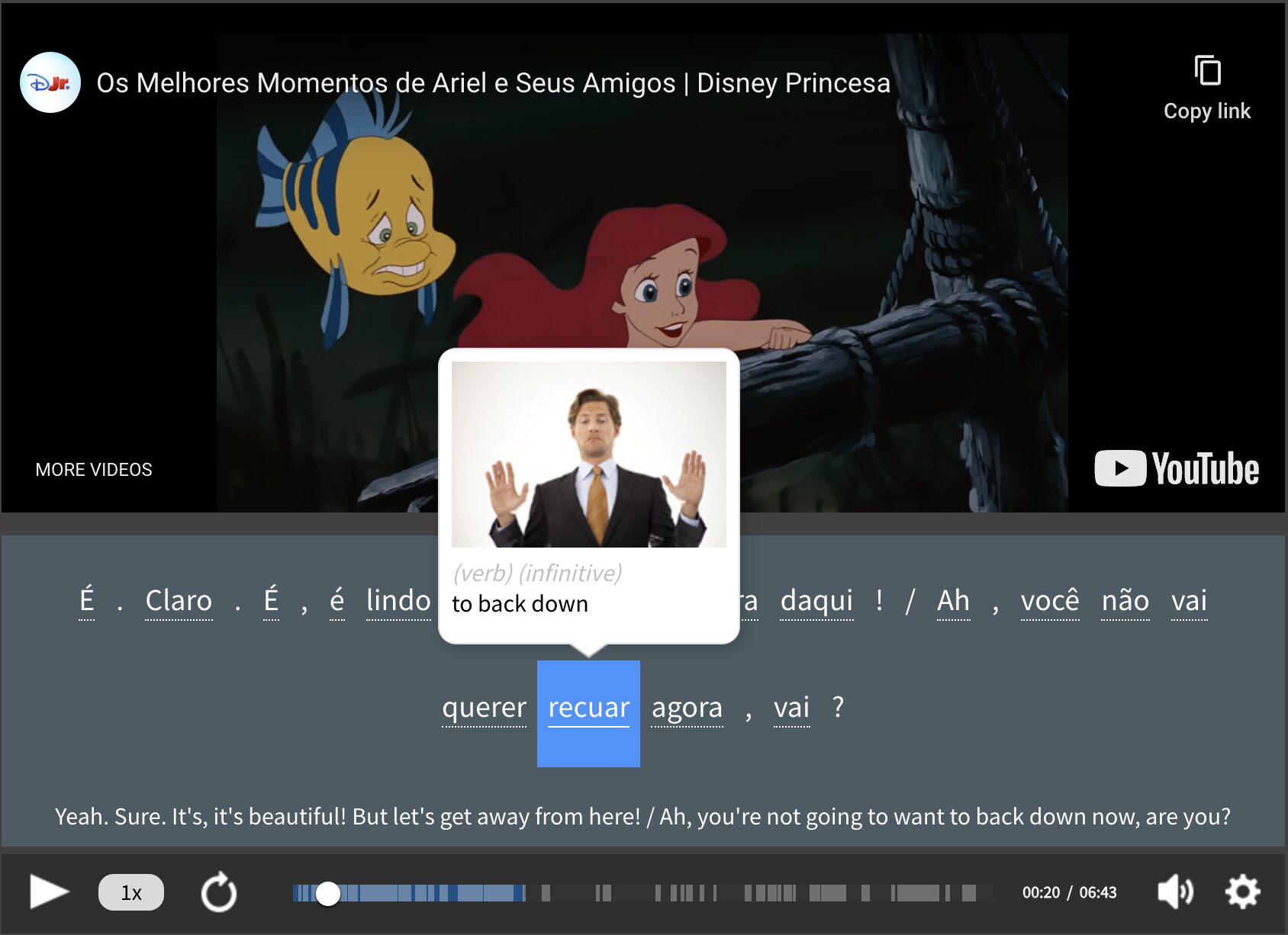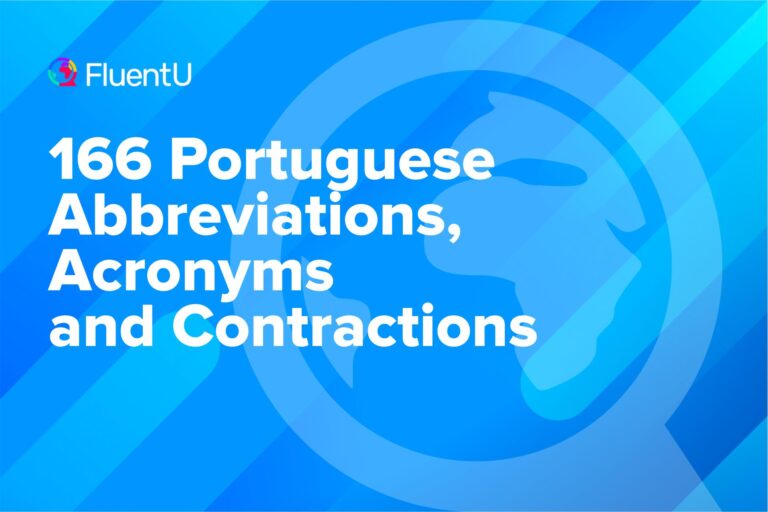Contents
- 1. You can communicate with millions of speakers around the world
- 2. Learning Portuguese connects you to rich cultures, as well
- 3. You’ll learn a relatively niche language
- 4. You’ll have a leg up on learning Romance languages
- 5. Portuguese is also a beautiful language
- 6. Portuguese is actually easy to learn for English speakers
- 7. You might appreciate soccer more
- 8. Learning Portuguese could increase your job prospects
- 9. Learning Portuguese could enrich your musical repertoire
- 10. You’ll be able to read some of the world’s best literature
- And One More Thing...
Why Learn Portuguese? 10 Reasons You Should

There are plenty of good reasons to learn Portuguese. You can enjoy Portuguese music, expand your horizons, boost your job prospects and learn about fascinating cultures, among others.
If you need any more motivation to start studying today, here are 10 great answers to the question “Why learn Portuguese?”
Download: This blog post is available as a convenient and portable PDF that you can take anywhere. Click here to get a copy. (Download)
1. You can communicate with millions of speakers around the world
According to Statista, there are over 263 million Portuguese speakers as of 2023, making it the eighth most spoken language in the world.
It’s also worth noting that, aside from Brazil and Portugal, there are other countries where Portuguese is an official language. In fact, the Comunidade dos Países de Língua Portuguesa (Community of Portuguese Language Countries) has nine members: Brazil, Portugal, Angola, Cape Verde, East Timor, Equatorial Guinea, Guinea-Bissau, Mozambique and São Tomé and Príncipe.
And because Portuguese also established its own empire back in the 15th century, you’ll also hear it spoken in countries like Sri Lanka, Goa (in India) and Macau (in China).
2. Learning Portuguese connects you to rich cultures, as well
Because the Portuguese empire spanned several continents, it brought together food, culture and products from around the world.
For instance, Brazilian culture has notable Portuguese, African and indigenous influences. Similarly, Portugal is a cultural melting pot of Roman, Germanic, Moorish and Viking influences, among others.
If you know the Portuguese language, you can better appreciate these amalgamation of cultures as told by native Portuguese speakers.
3. You’ll learn a relatively niche language
Despite being one of the most commonly spoken languages in the world, Portuguese didn’t even make the top 10 most studied languages in United States institutions of higher education in 2016. (Unfortunately, the Modern Language Association doesn’t have more recent data as of this writing.)
In other words, studying Portuguese can set you apart from those who are studying more popular languages. Plus, speaking a less commonly studied language looks super cool on any resume!
4. You’ll have a leg up on learning Romance languages
Like Spanish, French and Italian, Portuguese is a Romance language. Since these languages have similar origins, you’ll notice some overlap in vocabulary, grammar and pronunciation.
Therefore, if you’ve already studied another Romance language, learning Portuguese will likely be much easier than learning a language from a different family.
It works the other way around, too. Because of Portuguese’s similarities to other Romance languages, learning it can also set you up for success should you choose to study another Romance language down the road.
5. Portuguese is also a beautiful language
Because Portuguese is underrated compared to the other Romance languages, it’s not as often associated with, well, romance. (To be clear, the word “Romance” in “Romance languages” refers to their common origins in the Latin used by the Roman Empire, not the noun associated with love.)
However, Portuguese can be just as beautiful as Italian, French, Spanish, etc. Need proof? Check out this YouTube playlist of Portuguese poetry readings. I guarantee that your ears will thank you for immersing them in such beauty!
6. Portuguese is actually easy to learn for English speakers
Even though Portuguese comes from a different language family, it’s one of the easiest languages for English speakers to learn.
In fact, the US Department of State’s Foreign Service Institute (FSI) classifies Portuguese as a Category I language. That means, on average, an English speaker can become fluent in Portuguese within 24 weeks or 600 dedicated class hours. Even if you’re being conservative with your time estimate, that still translates to complete mastery in less than a year or so.
7. You might appreciate soccer more
Locally known as football or futebol, soccer is huge in both Portugal and Brazil. So if you love o jogo bonito (The Beautiful Game), Portuguese is a great language to learn.
Not only will it help you enjoy tons of soccer coverage, but you’ll finally be able to follow your favorite athletes on social media and actually understand what they’re saying.
8. Learning Portuguese could increase your job prospects
While the Brazilian economy has had its ups and downs, the fact remains that, to quote the Encyclopedia Britannica, it’s “one of the world giants of mining, agriculture, and manufacturing, and it has a strong and rapidly growing service sector.” (Interestingly enough, Portugal experienced similar economic trends as its South American cousin.)
This means Brazil is a big player in international business. If you plan to work for a company that is in any way connected to the country, your Portuguese language skills will give you an edge.
9. Learning Portuguese could enrich your musical repertoire
Portuguese music often falls under the radar. It’s often lumped under generic labels like “Latin,” and it does tend to mix genres a lot.
But if you make a concerted effort to get into it, you’ll be treated to some of the most rhythmically rich tunes in the world. I recommend anything by Brazilian artists Hermeto Pascoal and Pixinguinha in particular. If you know Portuguese, you’ll understand why these two have such a fan following.
And if you’re looking for something that combines music videos with language lessons, it’s hard to go wrong with the language learning platform FluentU. There, you’ll find countless videos with interactive captions that you can click so you can see the word’s meaning, save new vocabulary for later use and even quiz yourself.
FluentU takes authentic videos—like music videos, movie trailers, news and inspiring talks—and turns them into personalized language learning lessons.
You can try FluentU for free for 2 weeks. Click here to check out the website or download the iOS app or Android app.
10. You’ll be able to read some of the world’s best literature
And no, I’m not just talking about Paulo Coelho, who’s probably the most well-known Brazilian author in the English-speaking world.
I’m also talking about luminaries like:
- Joaquim Maria Machado de Assis (who’s often taught in Brazilian schools and has characters that show up regularly in Brazilian pop culture)
- Jorge Amado (whose books have been translated into 49 languages)
- Lygia Fagundes Telles (known for her feminist works revolving around sexuality)
And that’s not even getting into Portuguese authors from Portugal!
If you can read the original language their books were in, you don’t have to worry about common translation issues like loss of cultural context and plays on words.
These 10 reasons are just the beginning. Everyone has their own answer to the question.” So what are yours?
Download: This blog post is available as a convenient and portable PDF that you can take anywhere. Click here to get a copy. (Download)
And One More Thing...
If you're like me and enjoy learning Portuguese through movies and other media, you should check out FluentU. With FluentU, you can turn any subtitled content on YouTube or Netflix into an engaging language lesson.
I also love that FluentU has a huge library of videos picked specifically for Portuguese learners. No more searching for good content—it's all in one place!

One of my favorite features is the interactive captions. You can tap on any word to see an image, definition, and examples, which makes it so much easier to understand and remember.
And if you're worried about forgetting new words, FluentU has you covered. You'll complete fun exercises to reinforce vocabulary and be reminded when it’s time to review, so you actually retain what you’ve learned.
You can use FluentU on your computer or tablet, or download the app from the App Store or Google Play. Click here to take advantage of our current sale! (Expires at the end of this month.)










